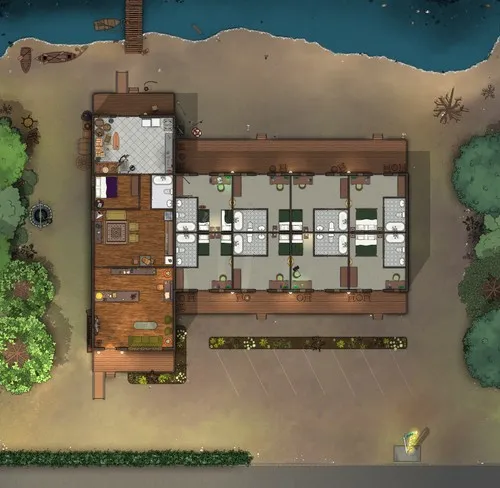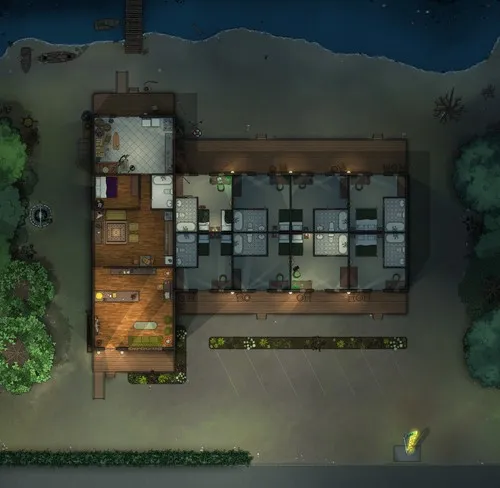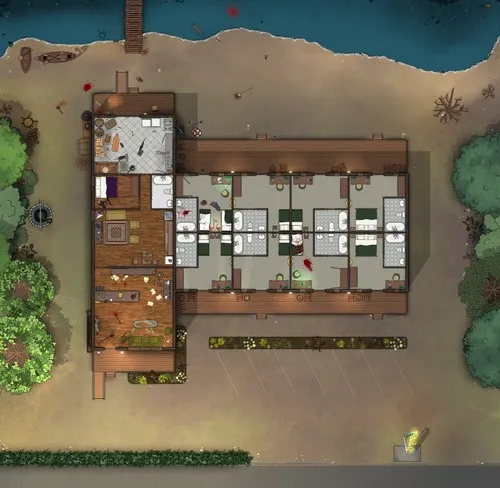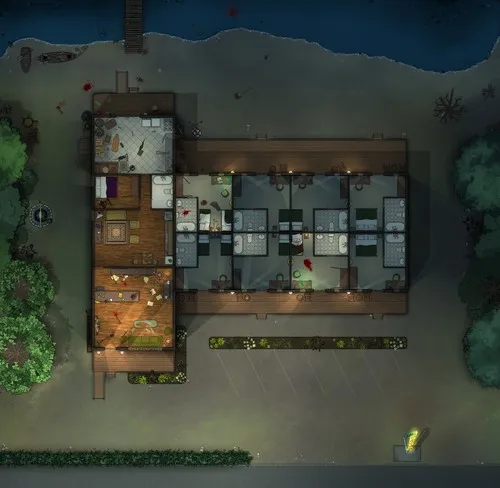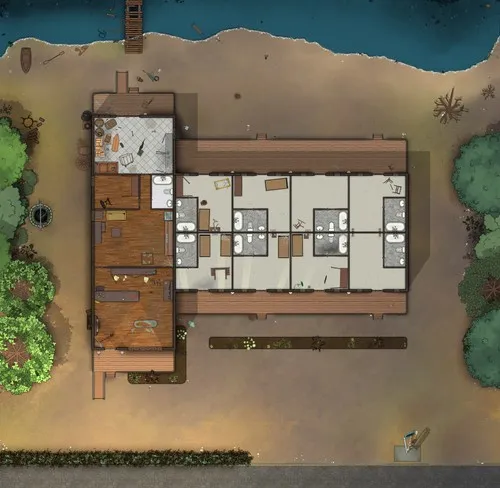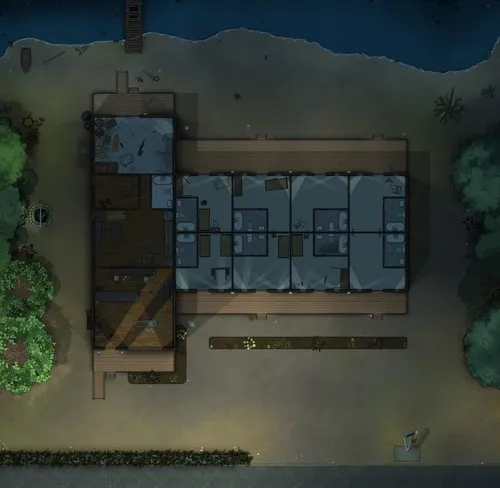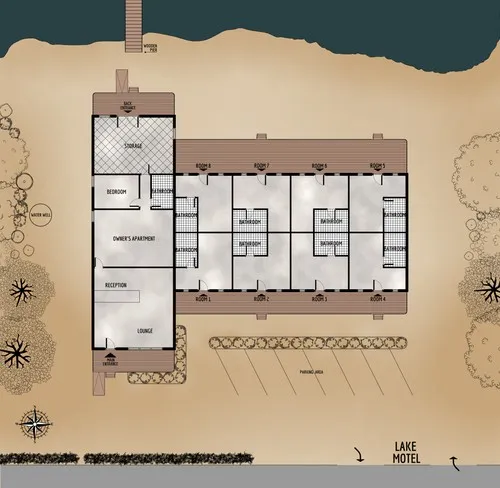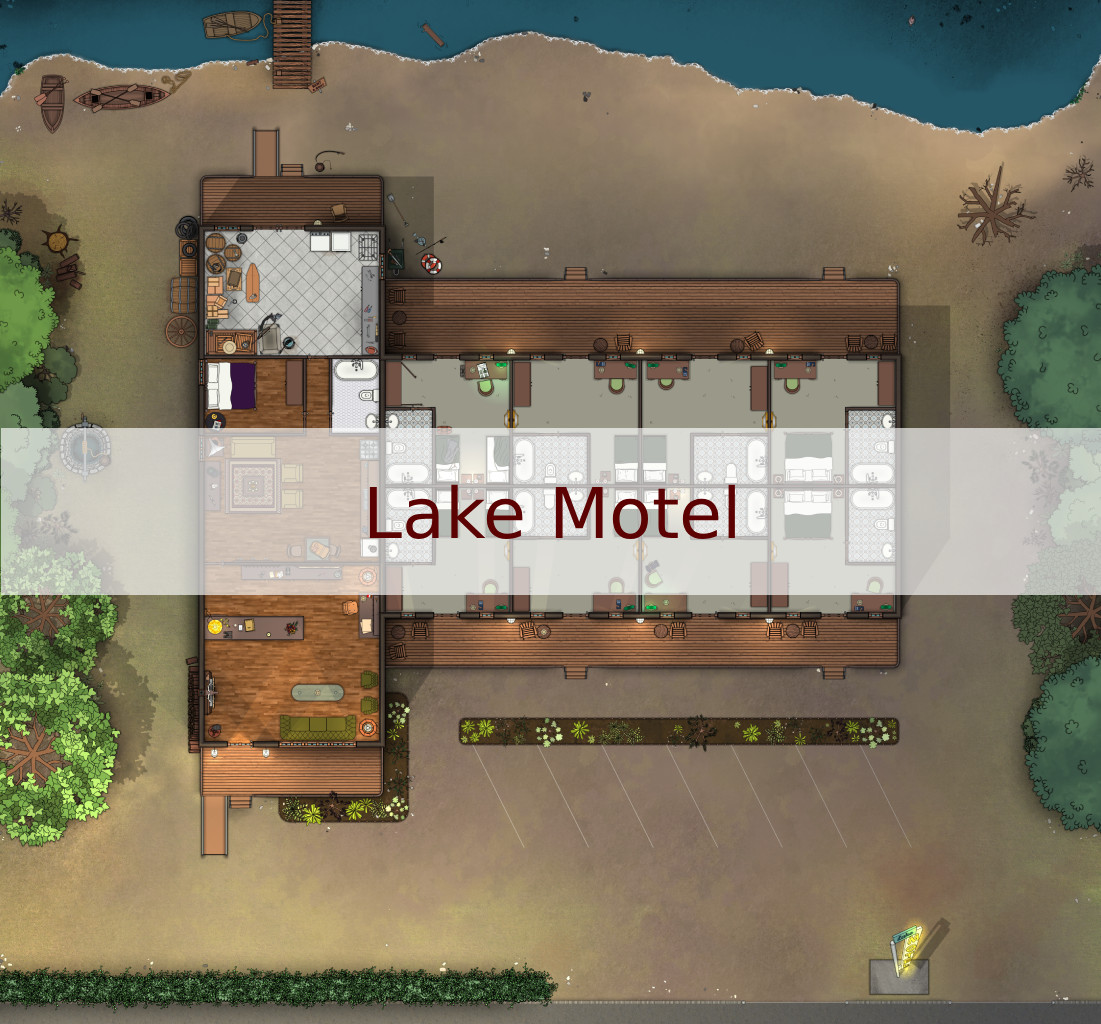What draws guests to return to the same room year after year, despite the management's warnings? Why does the lake level seem to change overnight, revealing things that should have stayed buried? What happened to the original owner who built the motel directly over the old indigenous settlement? Why do the phone calls always come from room 7, even when it's been vacant for months?
Follow Cthulhu Architect on BlueSky!“Mist to mist, drops to drops. For water thou art, and unto water shalt thou return.”
― Kamand Kojouri
Margaret had inherited the Lake Motel from her great-uncle without ever having seen it, and now she understood why he’d never spoken of the place. The eight-room establishment sat like a forgotten afterthought on the shores of Millbrook Lake, its neon sign flickering sporadically in the gathering dusk.”
The first guest arrived before Margaret had even finished unpacking. An elderly man with milky eyes who paid for room 7 in exact change, counting out bills that felt strangely cold to the touch. He signed the register as “H. Olmstead” in spidery handwriting that seemed to move when she wasn’t looking directly at it.
That night, the phone in the office rang at 3:17 AM. Margaret answered to find only the sound of water lapping against something hollow, followed by a voice that whispered coordinates—numbers that, when she looked them up, marked a spot directly beneath the lake’s surface. The caller ID showed room 7.
When she checked the next morning, room 7 was empty. The bed was made with hospital corners so tight they could cut flesh, and the air held the metallic scent of deep, ancient water. But Olmstead’s name remained in the register, and each night, more guests arrived asking specifically for that room.
Margaret began to notice patterns. Guests would stay exactly three nights, always paying with those unnaturally cold bills. They would emerge from room 7 each morning to stand at the lake’s edge for precisely forty-seven minutes before returning inside. And every night at 3:17, the phone would ring with those same whispered coordinates.
On the seventh night, Margaret couldn’t resist. She followed the sound of footsteps to the lake shore, where seventeen guests stood in perfect formation at the water’s edge. As she watched, the lake began to recede, revealing the skeletal remains of structures that had no business existing in this part of the world—buildings with geometries that hurt to perceive directly.
The guests turned to face her in unison, their eyes reflecting a light that came from somewhere deep beneath the lake. Margaret understood then why her great-uncle had built the motel exactly where he did, and why certain rooms were never truly vacant. Some places exist to serve purposes older than human memory, and some inheritances come with obligations written in languages that predate speech itself.
